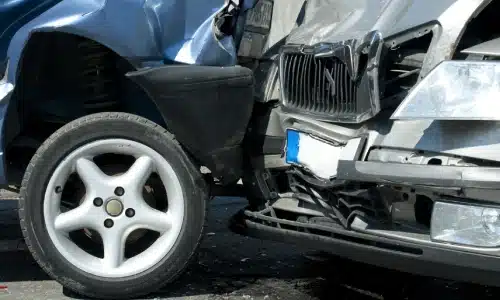
In an at-fault system, the insurance of the driver found at fault will cover the costs of injuries and damages. This approach can lead to quicker financial settlements but might also involve determining the degree of fault, which can sometimes complicate claims. It’s essential to know these details before hitting the road.
Those living or driving in South Carolina should ensure they comply with insurance requirements. Drivers in the state must carry a minimum coverage, which includes $25,000 per person for injuries, $50,000 per accident for injuries, and $25,000 for property damage. Understanding these requirements not only keeps you legal but also protects you in the event of an accident. For more detailed information, you can refer to South Carolina’s insurance requirements.
Understanding No-Fault Insurance
No-fault insurance is designed to streamline the process of getting insurance payouts after a car accident. It aims to reduce the time spent on legal battles and ensures quicker access to funds for injury and damage claims.
No-fault insurance requires each driver to file a claim with their own insurance company after an accident, regardless of who caused the crash. The key goal of this system is to speed up the claims process, enabling quicker access to necessary funds for medical bills and other expenses.
This type of insurance reduces the need for lengthy investigations and negotiations over fault, which can often delay financial relief. By allowing drivers to deal directly with their own insurers, the no-fault system helps limit legal disputes and the associated costs.
Car Insurance Laws in South Carolina
South Carolina requires that all drivers carry certain types of insurance coverage to protect against accidents. This section covers the mandatory coverage requirements and explains liability insurance.
Mandatory Coverage Requirements
In South Carolina, drivers must have specific coverage to comply with state laws. The minimum required insurance includes uninsured motorist coverage and standard liability insurance. Drivers must have at least $25,000 for bodily injury per person, $50,000 per accident for bodily injury, and $25,000 for property damage. This is often referred to as 25/50/25 coverage.
Moreover, South Carolina mandates uninsured motorists coverage equal to these liability limits. This coverage protects drivers if they’re hit by someone without insurance. There is also typically a $200 deductible associated with this coverage.
Driving without insurance is taken seriously in South Carolina, with penalties like suspension of license and registration, fines ranging from $100 to $400, and other fees that can add up to $550 for registering a previously uninsured vehicle.
Liability Insurance Explained
Liability insurance is fundamental to South Carolina’s car insurance laws. It ensures that if a driver is at fault in an accident, their insurance will cover the costs of the other party’s injuries and property damage. The required 25/50/25 coverage breaks down as follows:
- $25,000 for bodily injury per person
- $50,000 for total injuries per accident
- $25,000 for property damage
This coverage helps protect drivers from significant financial loss. Additionally, optional underinsured motorist coverage can be purchased. This pays for injuries or damage when the at-fault driver’s insurance isn’t sufficient to cover all expenses.
In South Carolina, not having enough liability insurance or driving without insurance can lead to severe fines and legal consequences, emphasizing the importance of maintaining the legally required coverage.
Accident Claims and Compensation
In South Carolina, understanding how to file a claim and determine fault after a car accident is crucial. These processes impact how compensation is sought and received.
Filing a Claim in South Carolina
South Carolina operates under a fault-based insurance system. This means that after an accident, the driver who is deemed responsible or at fault, is held liable for the damages. Drivers can file claims directly with the at-fault driver’s insurance company for various expenses.
Insurance policies in South Carolina must cover at least $25,000 for bodily injury per person, $50,000 for bodily injury per accident, and $25,000 for property damage. This is sometimes referred to as a “25/50/25” policy.
When filing a claim, it’s important to gather all pertinent information, such as the police report, photos of the accident scene, and medical records. Providing comprehensive documentation can help expedite the claim approval process and ensure that all incurred expenses are covered.
Determining Fault in an Accident
Determining fault is a key step in the claims process. In South Carolina, fault is usually determined by examining evidence from the accident, such as police reports, witness statements, and any available video footage.
The driver found to be primarily responsible for the incident is liable for the damages. South Carolina follows a modified comparative negligence rule. If a driver is found to be more than 50% at fault, they cannot claim damages from the other party.
For minor accidents, insurance adjusters typically analyze the evidence to assign fault. If the accident leads to litigation, the court will review all provided evidence to make a final determination. This rule ensures that compensation corresponds accurately to each party’s level of responsibility in the accident.
Legal Proceedings and Representation
Legal proceedings in South Carolina for car accidents follow an at-fault system, which means that determining and proving fault is crucial. Legal representation can help navigate these complexities and work toward securing compensation.
Role of the Courts
Courts in South Carolina handle car accident cases by evaluating evidence to determine fault. The process starts when the injured party files a lawsuit against the at-fault driver. Both parties may present evidence, such as police reports, witness statements, and expert testimony.
Judges and juries play significant roles in deciding the outcomes. They assess the extent of damages and may award compensation for medical expenses, lost wages, and pain and suffering. In specific cases, mediation or settlement might occur before reaching the courts.
Understanding how the legal system functions helps those involved in accidents prepare better. Knowledge of the procedures aids in setting realistic expectations for proceedings and outcomes.
Seeking Legal Counsel
Hiring a knowledgeable attorney is often essential for navigating the legal complexities in South Carolina’s at-fault car accident system. Legal counsel can offer detailed guidance on gathering necessary documentation, such as medical records and accident reports.
Lawyers specialize in negotiating with insurance companies to pursue fair settlements. They are skilled at evaluating claims, building strong cases, and advocating effectively on their clients’ behalf. Experienced attorneys can reduce the stress associated with legal proceedings by handling most aspects of the case.
Choosing the right lawyer involves researching their background, experience, and previous case outcomes. This ensures robust representation and increases the likelihood of favorable results.
Impact on Drivers and Premiums
In South Carolina, the at-fault insurance system affects how premiums are calculated and places specific responsibilities on drivers. This system impacts drivers’ insurance costs and what happens if they cause an accident.
Premium Calculation Factors
Insurance premiums in South Carolina depend on various factors due to the at-fault system. Rates are influenced by driving history, age, and type of vehicle. Those with a clean driving record typically enjoy lower premiums.
In an at-fault system, insurance companies also consider the driver’s culpability in past accidents. If an individual was at fault in previous incidents, their premiums might increase significantly. Location plays a role, too; areas with higher accident rates may lead to higher premiums.
Some insurers offer discounts for safe driving or installing safety devices in vehicles. However, the minimum coverage required includes $25,000 per person for injuries, $50,000 per accident, and $25,000 for property damage. Factors tied to the fault and risk heavily dictate these costs.
Driver Responsibility and Penalties
Drivers in South Carolina hold significant responsibility for their actions on the road. If they cause an accident, they are expected to cover the damages. This responsibility extends beyond paying higher premiums; it includes being financially liable for medical costs and property damage through their insurance.
Penalties for causing accidents can be severe. Drivers may face increased premiums, license suspension, or even legal action. This is designed to encourage responsible driving.
Drivers must carry adequate insurance to cover potential liabilities. If drivers are underinsured, they might personally bear the financial burden of any additional costs. The at-fault system thus places a strong emphasis on maintaining good driving habits and adequate coverage.
Take Action With the CEO Lawyer for Professional Legal Support
If you’ve been involved in a car accident and need professional legal guidance, don’t navigate the complexities of South Carolina’s at-fault system alone. Contact the CEO Lawyer Personal Injury Law Firm at (864) 664-3865 for dedicated and professional representation.
Our experienced South Carolina car accident attorneys will fight to secure the compensation you deserve, ensuring your rights are protected every step of the way. Call us today to schedule your consultation and take the first step towards justice and recovery.





